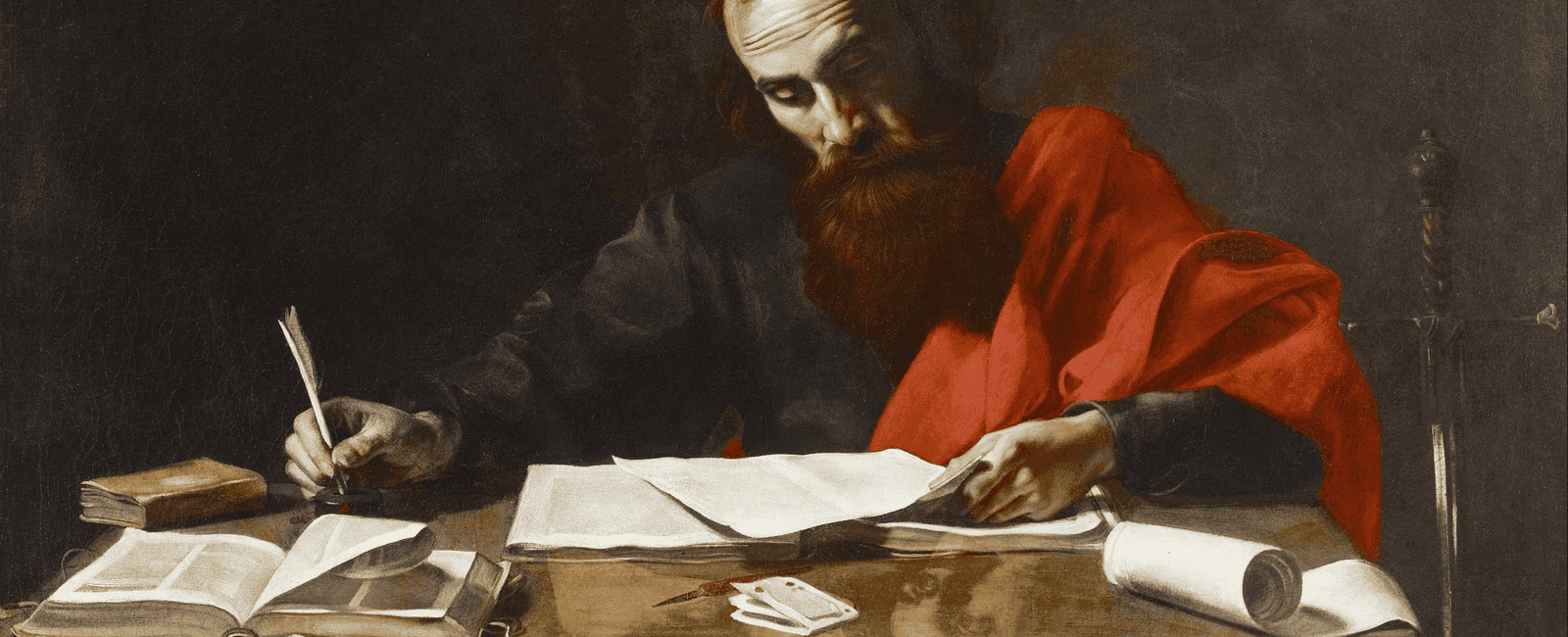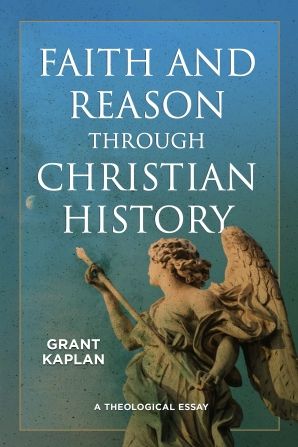A Conversation with Grant Kaplan on “Faith and Reason through Christian History: A Theological Essay"

Earlier this year, NINS got the chance to sit down with Grant Kaplan and discuss the release of his new book Faith and Reason through Christian History (CUA 2022). Dr. Kaplan provides some helpful insights into the genesis and implications of his book.
1. What was the inspiration for your book?
Sadly, the inspiration was on one level not very inspiring—somebody asked me to write it. But I have always been interested in fundamental theology and specifically the relationship between faith and reason. It seemed like a leitmotiv in the history of theology. Also, I was eager to write a non-specialist book, but one that would retain many of the traits of a scholarly monograph.
2. Was there anything that surprised you along the way as you were writing the book?
I liked reading figures that I’d barely engaged with before. I’d never read Hugh of St. Victor and Eriugena. I also struggled to find a good way to complete the book. Originally, I’d intended to write one chapter on the twentieth century and then maybe a conclusion dealing with the Regensburg Address. Instead, I ended up writing three chapters on the twentieth century and still had to leave out many beloved figures like Eric Voegelin and René Girard.
3. Faith and reason, as well as the nature of Tradition, are big topics right now. How do you see your book fitting into the overall discussion?
Well, I hope this book can be helpful for people trying to orient themselves to the broad Christian theological tradition. I wanted to give some of the key figures enough room so the reader could hear them speak and let them breathe. I also wanted to write something broadly ecumenical rather than apologetic. Regarding tradition, I think the book symbolizes or even sacramentalizes what the Catholic theological tradition is: to be part of a long, ongoing conversation by people committed to a set of truths or faith claims that need to be constantly understood anew in light of new encounters, circumstances, and contexts. Understanding the past doesn’t necessarily give the answers for what we should think, say, about the newest discoveries in genetics or astronomy. But it does give us the chance to understand more coherently what it means to think with the Church, to belong to a living tradition, and to think rationally within a faith tradition.
4. Beginning with Christian origins and going through post-modernity, your book covers a lot of ground! What are some of the advantages and disadvantages of this long-view?
The danger is to reduce figures and eras to a sentence or a claim that can be easily dismissed. I discuss around fifty figures and movements, which averages out to about two or three per century. That’s not a lot. So, for the sake of avoiding the danger mentioned above, I omitted many figures and eras. That’s why I call the book an essay. Cutting out part of the story had the benefit of making the book reasonable (I hope) in length. I was more concerned with giving a grounded picture of those I did treat than with saying at least something about everyone who has made an important contribution to the topic.
5. What would you say distinguishes this as a theological essay, and not say, an historical essay?
This is a very good question. An earlier subtitle of the book proposed something like “an historical and theological essay.” A responsible historian attends to context and is eager to show development within a thinker. I do a little of this, but in most cases I was interested in showing a given theologian’s work as unified or cohesive. I was also interested not just in relaying what people had said, but also ascribing some value or import to it. It would have been easier to write the book by saying nothing about Erich Pryzwara, for instance, and to pass over him as many overviews of the twentieth century have tended to do. Yet, I included him because I think what he had to say is uniquely valuable, even if has largely been overshadowed until relatively recently.
6. What are some of the challenges you see for today’s church concerning faith and reason?
There is a lot of cultural confusion about what science is and the relationship between technological possibilities made possible by scientific breakthroughs and moral questions about the pursuit of these technologies. Yet, on the level of mainstream culture, almost nobody can give a coherent account of science. It is hard to convince people that the Catholic Church and most mainstream Christian churches are pro-science when at the same time these institutions might oppose a given technology. One saw this, for example, in the debate over using embryonic stem cells in research. It is hard for people, even relatively educated people, to take a step back and understand the basic contours of debate because the myth about religious opposition to science is so deeply engrained culturally.
7. What are some of the challenges you see for today’s church in talking about the church’s lengthy, and sometimes convoluted, Tradition?
In 1975, Cardinal Walter Kasper, then a youngish theologian, wrote an article where he talked about tradition as a theological “Grundbegriff,” a “fundamental concept.” It was a concept, in other words, that determined in large part the different possibilities of theological discourse. I think Kasper was right, yet there is a real defect in theological formation, since very few students ever take a course on tradition. Many, certainly, want to “know the tradition,” but are often absent to any serious reflection on the theological meaning of tradition. Critiques or support for tradition often assume an understanding of what tradition means, but such assumptions are deeply contested.
What seems to have become a consensus is a sense that the Catholic theological tradition is “tainted,” by its participation in patriarchy, sexism, colonialism, racism, and a host of other wrongs. One reflex is to assume that, given this participation, one must discard most, if not all, of this tradition. Another reflex is to defend the tradition against these claims. I’m more interested in a process of retrieval to see how the Catholic theological tradition has dealt with this problem in the past. It feels like a new problem but is in fact not new at all. Here I think that Saint John Henry Newman can be of immense help, and I hope to be part of future conversations on this topic with the community at NINS and others who know and love Newman.
For interested readers, Grant Kaplan’s book is available for purchase through the Catholic University of America Press website. Click the following link to see format options and pricing: https://www.cuapress.org/9780813235837/faith-and-reason-through-christian-history/
Share
Grant Kaplan
Grant Kaplan is professor of historical and systematic theology at Saint Louis University (USA). He is the author of Answering the Enlightenment: The Catholic Recovery of Historical Revelation (Herder & Herder, 2006), René Girard, Unlikely Apologist: Mimetic Theory and Fundamental Theology (University of Notre Dame Press, 2016), and Faith and Reason through Christian History: A Theological Essay (Catholic University of America Press, 2022). He is the co-editor of the Oxford History of Modern German Theology. Volume 1: 1781–1848 (Oxford University Press, 2023) His articles have appeared in such journals as Political Theology, Theological Studies, Horizons, International Journal of Philosophy and Theology, and Newman Studies Journal. He has received grants from the Humboldt Foundation, the National Institute of Newman Studies, and the Fulbright Foundation.
Topics
Newsletter
QUICK LINKS


